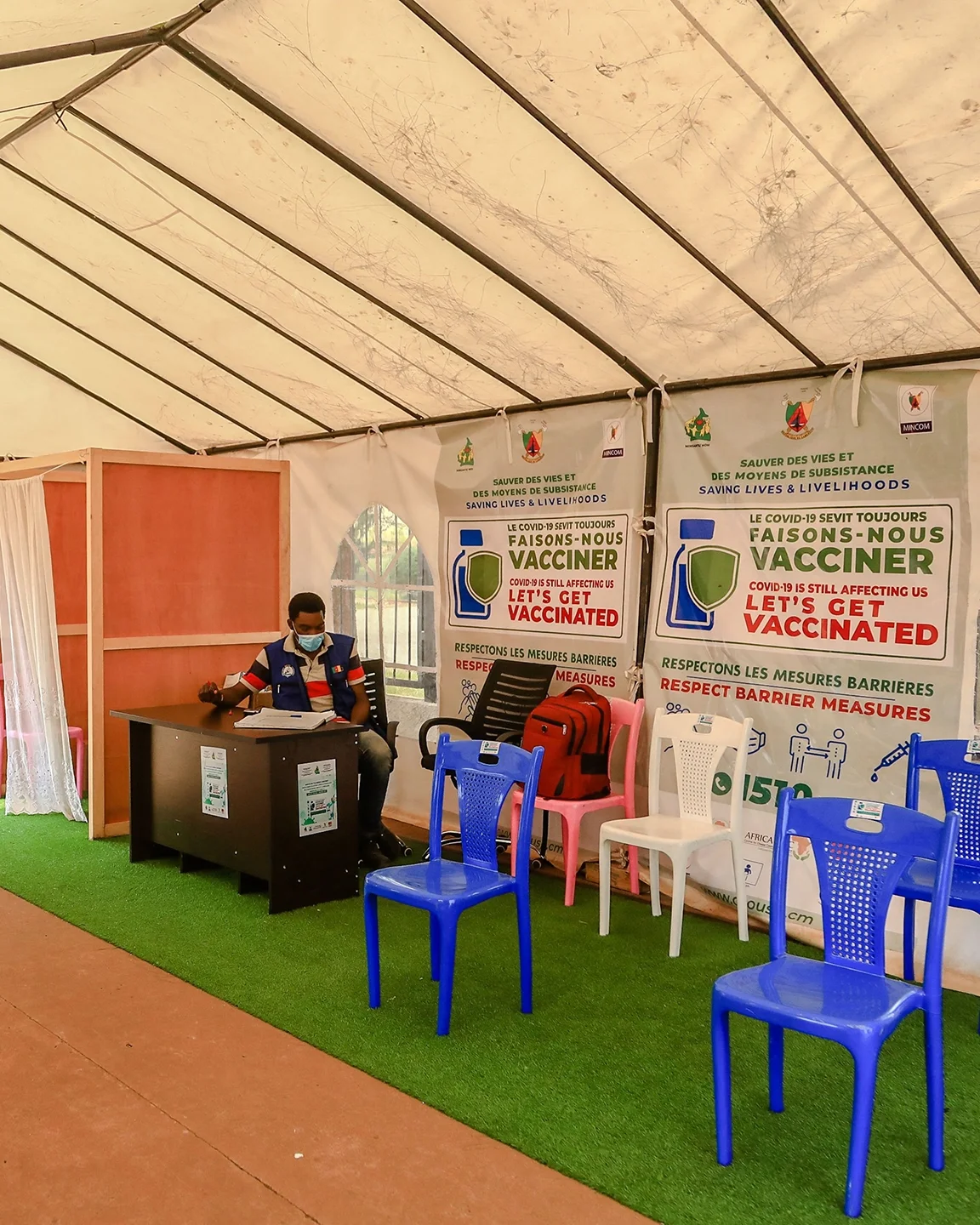A new study examines treatment-related regrets among prostate cancer patients.
Men newly diagnosed with prostate cancer have difficult treatment decisions, and the last thing any of them wants is to subsequently regret their treatment choices. Regrets about therapy, however, are extremely common, according to a new study.
The research discovered that more than one in ten individuals diagnosed with prostate cancer between 2011 and 2012 were dissatisfied with their selected treatment.
All of the guys were under the age of 80, with an average age of 64. Almost half of them were diagnosed with slow-growing malignancies that had a low chance of recurrence or spread following treatment. The remainder were classified as being at intermediate or higher risk.
All of the men were treated in one of three ways: surgical removal of the prostate (called a radical prostatectomy); radiation therapy; or active surveillance, which involves monitoring prostate tumors with routine PSA tests and imaging and treating only when, or if, the disease progresses. Regardless of their cancer risk at the time of diagnosis, more than half of men opted for surgery. The majority of others chose radiation, while almost 13% of males — the bulk of whom were classified as low- or intermediate-risk — chose active surveillance. The guys were then asked at repeated intervals if they felt they would have been better off with a different strategy or if the treatment they had selected was wrong.
What the findings revealed
After five years, 279 of the males (or 13% of the overall group) expressed regret about their choice. Men who had surgery were the most likely to express dissatisfaction with their decision; 183 of them (13%) felt they would have been better off taking a different method. In comparison, 76 (11%) of radiation-treated men and 20 (7%) of men who selected active surveillance voiced remorse. Men in the low-to-intermediate-risk category expressed greater regret about electing for immediate treatment with surgery or radiation over active surveillance. However, the guys with high-risk cancer did not regret receiving immediate treatment.
Are you downplaying your accomplishments and exaggerating your failures? Adjust your skewed thinking
 |
| Pexel photo |
Some things are unquestionably true. Rain pours down from the sky. Elevators rise and fall. Orange traffic cones are orange traffic cones. However, a lot isn't so clear because we interpret the world through our experiences.
"Good job," the supervisor may say, and we wonder why they didn't say "Great job." We notice someone looking at us and they appear angry, so we assume they're mad at us because no other explanation makes sense.
What's going on is that we're distorting our perceptions, leaping to conclusions, mind reading, and assuming the worst. We reduce our achievements and increase our "failures" when we do this, and because it can be a habitual process, it's difficult to notice when it's happening. Dr. Luana Marques, associate professor of psychology at Harvard Medical School, adds, "You don't realize you're wearing magnification glasses."
So, how can you see things more clearly and from a more balanced standpoint? It requires practice and a willingness to suffer discomfort, but it all starts with awareness, as it does with every problem.
What happens when we exaggerate failures and draw unfavorable conclusions?
We prefer to process information rapidly, and filters assist us in doing so. If we believe that "I'm no good," any comments and actions that reinforce that belief simply make things simpler.
"The brain is not interested in expending energy attempting to combat that," Marques explains. And depending on the distortion, the brain reacts differently. The limbic system is engaged when anything creates anxiety, such as a strange look or comment, and we go into fight-or-flight mode, hyper-focused on the threat and not thinking creatively or considering alternate, less threatening possibilities.
However, there are moments when there is no threat in the game. When we doubt our talents and downplay our achievements, we're merely thinking, perhaps too much.
So, what can you do?
Identify the distorted way of thinking.
It aids in the identification of our distortions, the most common of which are:
Catastrophizing is the process of extrapolating the worst-case scenario from a minor occurrence.
Thinking in black-and-white terms means only seeing all-or-nothing options.
Jumping to conclusions: Making assumptions about what will happen rather than waiting to see what happens.
Mind reading entails making educated guesses about what someone is thinking without a lot of proof.
Because "we tend to do one more than the other," Marques argues, labeling it will help you better understand and detect your go-to distortion.
After that, it's a good idea to evaluate your mental state by asking yourself, "Am I stressed?" Is it true that I'm sweating? Do I have a racing heart or shallow breathing? It puts you more into the situation and enables you to reflect on what you were doing at the time, such as "I was attempting to guess the outcome." It's another method of identifying the distortion you want, she explains.
Challenge the distortion
Regardless of the distortion, you should double-check your assumption by looking for additional evidence. If you're not sure how your boss feels about you, consider this: What does my boss actually say? What about other people does this person say? Is it true that I've gotten promotions and raises? Are good projects being assigned to me?
Would you make adjustments in your life if you knew they could help you avoid a variety of health problems, such as diabetes, heart disease, stroke, Alzheimer's disease, or arthritis? Recent advances in our understanding of inflammation and health are nothing short of astonishing.
Many of these disorders are characterized by inflammation. Indeed, inflammation is the primary underlying cause of the majority of ailments, diseases, premature aging, and obesity. And, unsurprisingly, some of the most effective prophylactic interventions are nutritional in nature.
We are all inflammatory. Indeed, the irony is that we require it. Yes, inflammation contributes to overall body health—in tiny doses. Indeed, we would not exist without inflammation.
Inflammation Types
Inflammation is classified into two types: acute inflammation and silent inflammation. Each of us is vividly aware of the dangers of inflammation. How are we aware of this? Because we encounter it on a regular basis. When you are hurt or ill, acquire a bad head cold, or skin your knee, inflammatory substances such as small proteins called cytokines and white blood cells called neutrophils and macrophages rush to your aid. Even while acute inflammation is unpleasant, it is necessary because, without it, we would not heal.
Consider a cut on the finger. When you cut your finger, tiny soldiers rush to the wound site; the wound heals, the soldiers disperse, the inflammation subsides, and all is fine. We require a brief inflammatory reaction and then for it to subside.
When acute inflammation does not resolve but continues to emit inflammatory molecules, it is classified as chronic or silent inflammation, which is the most dangerous variety due to its persistence. Silent inflammation is analogous to having an unhealed sore on the inside of your body.
Many of us deal with chronic pain on a daily basis, which can range from toothache to throbbing joints. Living with persistent or nagging pain can result in stress and sadness, which exacerbates these painful disorders.
There are natural ways to assist your body in reducing discomfort and, in some cases, completely eliminating it. Unfortunately, many people turn to drugs that have significant adverse effects and can result in the development of other health problems. This is why certain, well-researched nutrients can have as much, if not more, influence than drugs in some circumstances.
What Factors Contribute to Inflammation?
Just as certain foods might help alleviate inflammation, others can exacerbate it. It is critical to understand what causes inflammation. These foods, medical conditions, and lifestyle variables all have the potential to aggravate inflammation:
Sugar
The American Standard Diet
Vegetable, soy, corn, and canola oils that have been refined and processed
Obesity and excess weight
Gut bacteria that are not healthy
Deficiencies in nutrients
Sedentary way of life
Insomnia
Prolonged stress
Aging
Natural Anti-Inflammatory Methods
Inflammation may be detrimental to our health, and understanding which foods and tailored supplementation can assist is a critical first step toward stopping it in its tracks.
1. Incorporate Anti-Inflammatory Foods into Your Diet
Anti-inflammatory foods such as berries, leafy green vegetables, fatty fish, olive oil, extra virgin coconut oil, and all teas, but especially black, ginger, turmeric, and green tea, are critical. Turmeric, cumin, cinnamon, basil, parsley, and ginger; dark chocolate; cruciferous vegetables like cauliflower and broccoli; nuts like walnuts or pecans; and seeds like pumpkin or sunflower seeds are all-powerful anti-inflammatory foods. In addition to anti-inflammatory foods, you’ll want to make sure you are getting your daily vitamins, as they can help your body get rid of free radicals that contribute to inflammation and cellular damage. Over the counter supplements or IV therapy in Raleigh, NC can help ensure you get the vitamins you need to feel your best.
2. Provide Food for Your Microbiome
Consider your stomach as a garden. The first step toward establishing a healthy gut is to uproot the weeds: you must cease feeding the bad gut bacteria by abstaining from inflammatory foods, which are their primary source of nutrition.
The second stage is to establish beneficial gut bacteria. Your gut will be healthier if you seed it with beneficial bacteria through a quality supplement, fermented meals, cultured foods, or a combination of these. Consuming anti-inflammatory foods promotes a diverse, beneficial microbiome, which helps to minimize and avoid chronic inflammation.
Thirdly, fertilize your gut garden. You want to guarantee that these beneficial gut bacteria are fed with gut fertilizer or prebiotics. Among these are artichokes, onions, garlic, leeks, ground flaxseed, berries, apples, and beans, as well as potato starch. Bear in mind that you do not want the poor, unhealthy gut bacteria to grow and live via inflammatory meals; rather, you want to promote an abundance of healthy gut bacteria via healthy prebiotics—the primary food source for healthy gut bacteria.
3. Consume Anti-Inflammatory Supplements
Curcumin is the active ingredient in turmeric. Numerous studies demonstrate curcumin's anti-inflammatory properties, including being as effective as NSAIDs.
Cinnamon possesses anti-inflammatory, antioxidant, and antibacterial properties.
Magnesium glycinate: The vast majority of people are magnesium deficient. Magnesium has been demonstrated to assist in the fight against inflammation. It decreases the inflammatory marker CRP and has a number of other beneficial effects.
Black cumin seed oil: A herb that has been demonstrated to be anti-inflammatory in rheumatoid arthritis and osteoarthritis.
Fish oil: A highly effective anti-inflammatory with a high concentration of omega-3 fatty acids (DHA and EPA) that aids in the prevention and resolution of cellular inflammation. Additionally, it is beneficial for cardiovascular health.
Krill oil: A highly accessible type of omega-3 fatty acids that, unlike other omega-3 fats, may pass the blood-brain barrier.
Cod liver oil: A potent fish oil that is beneficial to health. It is a good source of vitamin D and A. Additionally, it may help prevent blood clot formation and inflammation in the body.
Ginger has been demonstrated to benefit digestive health and can even temporarily alleviate moderate nausea and upset stomach. Additionally, ginger has a variety of potent free radical-suppressing chemicals that aid in the reduction of inflammation.
Boswellia: Commonly referred to as frankincense, the Boswellia phytosome promotes a healthy inflammatory response in the respiratory and gastrointestinal tracts, as well as in the joints, muscles, and tendons. Boswellia also contributes to the balance of the inflammatory response, which protects brain tissue.
Flaxseed oil: High in ALA (plant-based omega-3 fats), this concentrated form of omega-3 can help keep inflammation at bay, while also supporting optimal cellular health as a healthy fat source.
Green tea extract: Green tea extract is beneficial for cellular, cardiovascular, and cognitive health. It is high in polyphenols, the most well-known of which is EGCG, which has a plethora of health-promoting characteristics.
Bromelain is a proteolytic enzyme generated from the pineapple plant's stem. When taken in between meals, it may aid in joint comfort and may alleviate transitory discomfort caused by muscle usage.
Collagen powder: Collagen is necessary for tissue growth and maintenance. It is the structural protein required for bone strength and joint flexibility, as well as hair, skin, and nails. It can be added to smoothies, coffee, or shakes in powder form.
Every day, with a few simple dietary and lifestyle modifications, you can combat inflammation rather than promote it. Consult your primary care physician before making any significant changes to your diet, including the addition of new supplements.
Regardless of your personal style preferences, The color black is an important color. It's timeless and simple, and despite a reputation for being "boring," it may actually be quite versatile. It all depends on the things you choose to wear and how you combine them. To demonstrate how universal the color is, we're showing you how to style an all-black outfit regardless of whether your style is more classic, trend-forward, or somewhere in between.
Forget your preconceived notions about the dark, monotone aesthetic appearing overly solemn or austere. Those with romantic style demonstrate the color's flirtatious and playful nature, while trend-savvy individuals make the palette instantly desirable. With that, scroll down to see the all-black outfits we're loving right now 2022.
We are all aware that motivation is essential for achieving personal and professional objectives. However, if you wait for motivation to hit like a bolt of lightning, you'll be much less likely to take any action. Even if you've set a lofty goal for yourself, it's all too easy to lose motivation due to feelings of overwhelm, procrastination, or impatience. The strategies outlined below can assist you in increasing your motivation to achieve the goals that are important to you.
The significance of your objective
Before you select a goal, you must first determine its significance – that is, why is achieving this goal so important to you? What does this success mean to you? "I want to drop 10 pounds so I can have more energy to play with my grandchildren," for example, is significantly more meaningful than "I want to reduce weight." Perhaps your goal is to paint a room a different color because you believe it would bring you more happiness. This is not the same as establishing a goal of "paint room."
If you create a goal and find yourself procrastinating or failing to achieve it, reconsider the objective's meaning. Is this a goal that you still care about? If that's the case, think about the meaning behind your procrastination or the challenges you're having.
Make your goal a reality.
Make a detailed plan to reach your goal. This plan should be guided by the term SMART:
(What specifically do you aim to achieve?)
Measurable (How will you know when you've achieved your goal?)
Achievable (Do you think you'll be able to achieve your goal?)
Realistic (Does it make sense for you to set this objective right now?)
Time-bound (Can you give me an estimate of how long it will take you to achieve this goal?)
For instance, a goal of "exercise more" is too broad and will not lead to success. Instead, make a goal for yourself to walk 50 steps in the next hour or a 15-minute stroll on Wednesday morning. This objective is specific, quantifiable, attainable, reasonable, and time-bound.
Make a to-do list – and check it twice.
Make a to-do list to fulfill a certain objective once you've identified it.
What are the materials you'll require?
What steps will you take to achieve your goal? Tasks should be broken down into manageable mini-tasks, and each one should be written down.
Each task should have a deadline. Make a schedule to complete these chores, ensuring that regular breaks and realistic time frames are included.
As you finish each mini-task, cross it off your list. Step by step, you'll see that you're getting closer to your objectives.
Start working toward your objective if you're having trouble breaking it down into smaller activities. For example, if you want to increase the number of steps you take each day but are having trouble determining the perfect number of steps to aim for, simply start walking. You'll be able to determine the appropriate number later.
Others should be included.
Invite a group to assist you in achieving your goal. You may join a running club or ask relatives and friends to keep an eye on you while you work toward your overall objective. Friends may be able to send you email or text message reminders to help you stay on track. Finally, surround yourself with others who are pursuing their own objectives. Their efforts may also motivate you.
The Chicago Public Schools (CPS) told parents on Thursday evening that classes will be canceled for the third day in a row on Friday due to a failure to reach an agreement between the district and the Chicago Teachers Union.
"On Friday, January 7, CPS classes will be canceled. Tomorrow, a limited number of schools may offer in-person learning and activities. Please wait until you hear from your child's principal before sending your child to school "In a communication to parents, the district stated.
Gov. Chris Sununu of New Hampshire announced the deployment of another 100 National Guard personnel to assist the state's healthcare system in the wake of an increase in Covid-19 cases.
Sununu stated at a Covid-19 news briefing on Thursday that some 30 guard members will be dispatched to long-term care facilities and 70 to hospitals that provide critical care.
According to data provided by the state's health department, new daily cases during the preceding seven days averaged 1,766 new infections, a 55 percent rise compared to the previous seven-day period.
Sununu said in early December that 70 National Guard personnel would be deployed to assist hospitals in areas where the need is greatest, aiding with activities that will allow for a more efficient operation.
Louisiana sets a new state record for daily Covid-19 cases.
At least 14,077 Covid-19 cases were recorded in Louisiana on Thursday, a new high for the state in a 24-hour period, according to Gov. John Bel Edwards.
Do not go to the emergency room for Covid-19 testing, according to Louisiana State Health Officer and Medical Director Dr. Joseph Kanter, to avoid further burdening hospitals.
He agreed that take-home tests can be difficult to come by in the state, but said that PCR testing laboratories are open and available and that if someone has symptoms and is unable to obtain a test, they should presume they have Covid-19.
"In the context of the current spike, if someone is seeking for an antigen test, a take-home test, and they can't locate it, but they have symptoms, they should just presume they have Covid and isolate accordingly," Kanter said. "If you have trouble getting a test, especially a take-home test, and you have symptoms, the prudent thing to do is just assume you have Covid and isolate away from other people when you're in a surge like we are right now and Covid is everywhere—and it is everywhere right now—the prudent thing to do is just assume you have Covid and isolate away from other people." Right now, that's the safest option."
Here's some background: According to the governor, 1,412 people have been hospitalized in Louisiana due to Covid-19, an increase of 125 since Wednesday.
The Centers for Disease Control and Prevention (CDC) in the United States will conduct a media briefing on Friday to provide updates on the Covid-19 pandemic.
Dr. Rochelle Walensky, Director of the Centers for Disease Control and Prevention, will talk at 11 a.m. ET.
Peru raised its coronavirus pandemic alert level to high and will implement new restrictions starting Friday, including a curfew in 25 provinces, according to state news agency Andina.
Peru detected its first four cases of the Omicron variant in the country on Dec.19 and is dealing with a "third wave" of infections, state media said.
The new restrictions include a curfew from 11 p.m. to 4 a.m. local time and new capacity limits for businesses and commercial activities.
Israel intends to remove all countries from its "red" no-fly list, including the United States, the United Kingdom, and the United Arab Emirates. The number of infections reached a new high of 19.
Israelis will be able to travel to these countries without special permission starting at midnight local time. Vaccinated or recovered returnees will only need to self-isolate for 24 hours or until they receive a negative PCR test. Returnees who have not been vaccinated must perform a PCR test when they arrive and provide a second negative result after a week of self-isolation. Non-Israelis will be able to enter the nation again starting on Sunday, as long as they are vaccinated.
Prior to the Africa Cup of Nations, Cameroon launches a huge Covid-19 operation.
The African Cup of Nations (CAN) soccer finals begin on Sunday, and Cameroonian authorities have initiated a large testing and vaccine campaign against Covid-19.
Hundreds of vaccination stations have been set up in all six cities hosting the tournament, in accordance with the Confederation of African Football's criteria (CAF).
Before entering stadiums, CAF will need supporters to produce proof of vaccination as well as a negative Covid-19 test.
"Supporters may only access stadiums to watch Africa Cup of Nations matches in Cameroon if they are completely vaccinated and can provide a negative PCR test result from within the last 72 hours or a negative antigen test result from within the last 24 hours," CAF stated in a statement.
Airlines have canceled another 1,600 flights due to reports of worker coronavirus.
As their operations suffer from workers calling out ill with coronavirus, airlines continue to cancel and postpone thousands of flights.
According to flight-tracking website FlightAware, airlines had canceled or delayed more than 1,620 flights countrywide by Thursday afternoon.
Airlines in the United States canceled 1,790 flights and delayed another 6,097 on Wednesday.
For the first time, Italy reaches 200,000 cases of Covid-19 in a single day.
According to official data, Italy has registered more than 200,000 new daily Covid-19 cases for the first time since the pandemic began.
On Thursday, the country's health ministry recorded a total of 219,441 new daily Covid-19 cases. There were 198 deaths recorded as a result of Covid-19, bringing the total number of deaths to at least 138,474.
On Wednesday, the Italian government made the Covid-19 vaccine mandatory for anyone over the age of 50.
1% of Mayo Clinic staff were fired for failing to comply with the Covid-19 vaccination program.
 |
| (Phelan M. Ebenhack/AP) |
According to the Mayo Clinic, 1% of its staff were fired for failing to adhere to the clinic's mandatory Covid-19 vaccination program.
In an email to CNN, the health system stated that "the requirements of the patient come first."
Mayo Clinic said in a statement that "now is a time when the evidence supporting the efficacy and safety of COVID-19 vaccines must be firmly supported to help preserve the health and safety of our patients, workers, visitors, and communities."
According to its website, the Mayo Clinic employs 73,000 people.
If you're taking the Moderna or Pfizer vaccines, complying with the program includes getting at least one dose of the Covid-19 vaccine and not being overdue for a second dosage. According to the announcement, nearly 99 percent of staff at all Mayo Clinic facilities met the program's Jan. 3 deadline.
Subscribe to:
Posts (Atom)
No content on this site, regardless of date, should be used to replace direct medical advice from your doctor or another trained practitioner.








